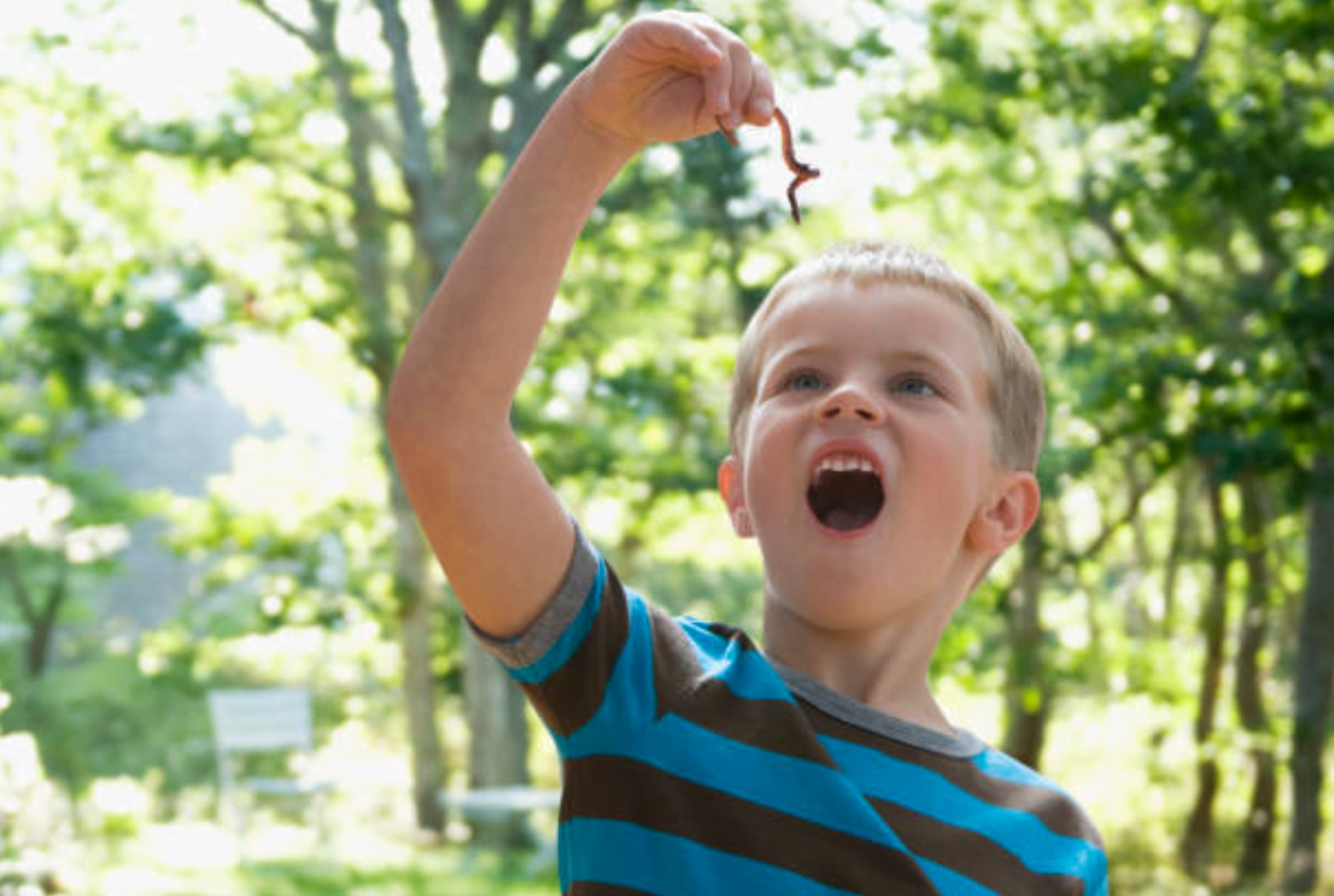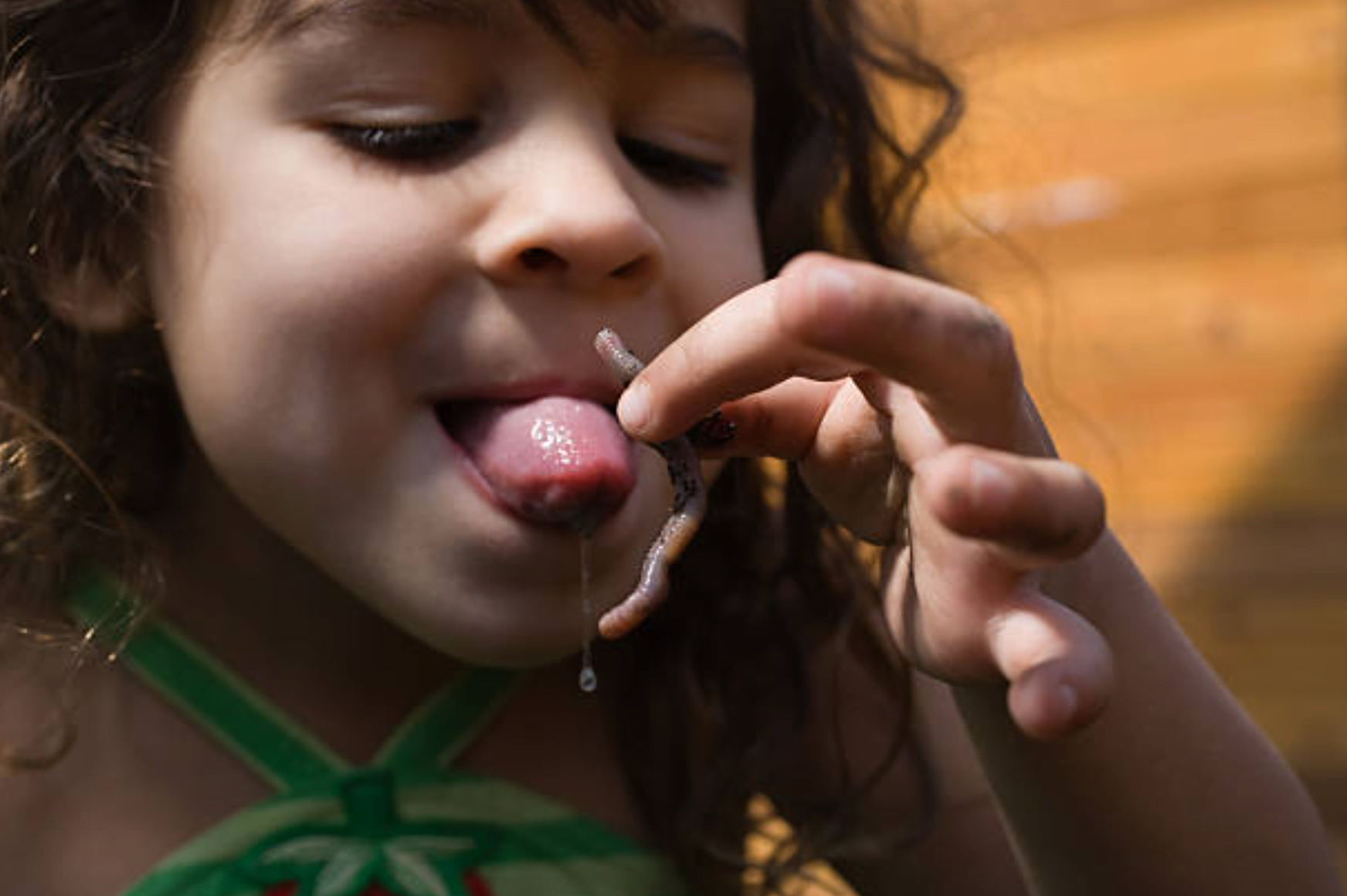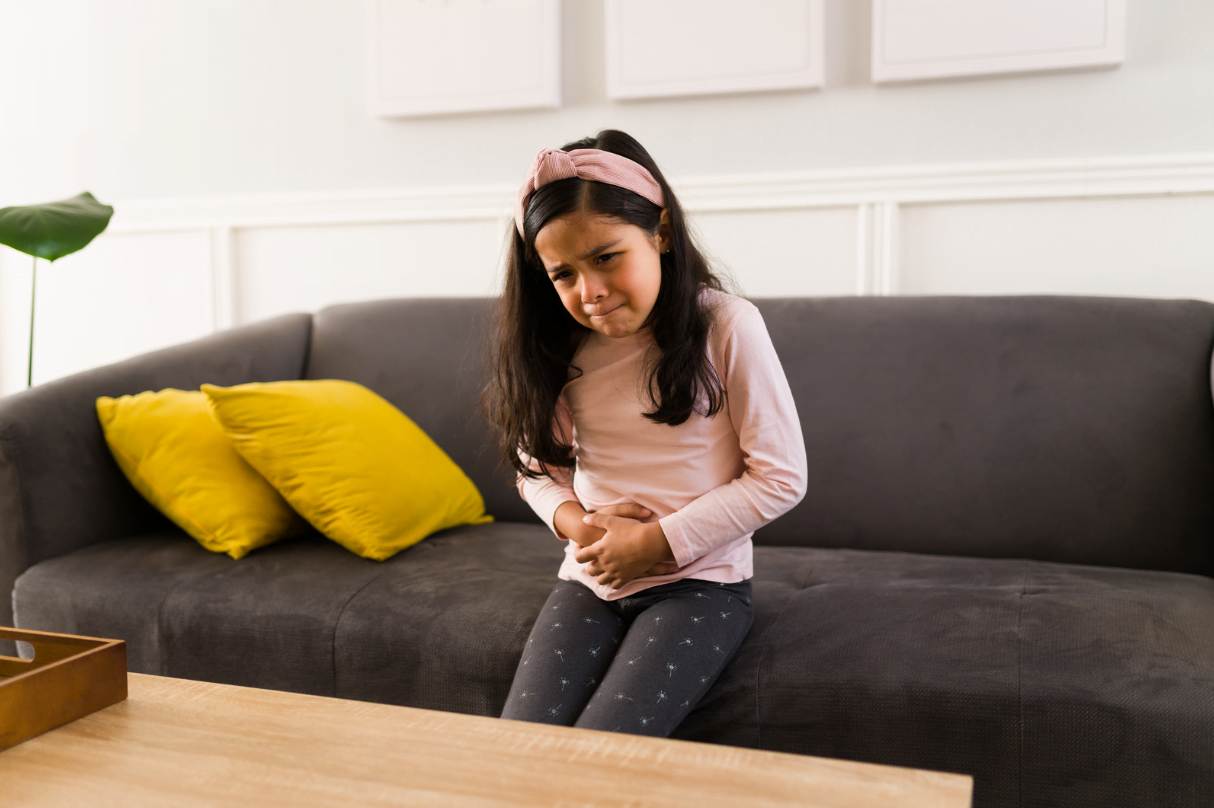Why does my child keep getting worms?

In this article, we talk to Dr. Shruti Nathwani from The Children's Medic. She tells us about worm infections in kids; why some children get recurrent infections, how to treat them, and what steps you as a parent or carer can take to avoid infections with worms affecting your little ones.
How do worms cause infection?

Certain types of worms cause parasitic diseases because they are able to live, grow and breed in the intestines of humans and other animals. Most worm infections in the USA and Europe are caused by a type of worm called a pinworm (also called threadworm.) This is an infection primarily spread from person to person.
There are also many more types of infection caused by worms worldwide. They are mainly only a risk in parts of the world with tropical climate and those without modern toilets or sewage systems and poor food hygiene standards.
How do children catch worms?

Worms are shed in the faeces of an infected human or animal. The parasitic infections can be very infectious; close contact of any kind can result in passing the infection on. Kids in particular often catch worms through direct contact and ingestion of the eggs or larvae (baby worms.) This can happen in a number of ways.
Faecal-oral transmission (aka Eating Poop)
The most common way children get worms is by accidentally ingesting the worm eggs that are found in food, water, or on surfaces contaminated with trace amounts of the faeces (major ick I know!)
If a child touches the contaminated surface or object and then puts their hands in their mouth, they inadvertently swallow the eggs and become infected.
Close contact
Pinworms are especially infectious to humans and are easily spread through personal contact. If a child comes into contact with someone who has worms, such as through hugging, shaking hands, or playing together, the eggs can transfer from one person's hands to another's.
Infected bedding and clothing
Worms eggs can also be present on bedding, clothing, towels, or other items that have come into contact with an infected person. If a child shares these items with an infected person, they may unknowingly pick up the eggs. It's advisable to wash bedding regularly at 60°C (140°F) or higher if you suspect someone is infected with worms.
Eating raw unwashed fruit and veg
There's a risk of intestinal worm infections if children eat raw fruit or vegetables that have not been washed . This is because the fruit or veg can be covered in contaminated soil containing worm eggs. You can easily avoid this risk if you wash garden grown fruit and veg thoroughly.
Eating raw or undercooked meat
Eating meat that has not been properly cooked (like raw or undercooked beef or pork) can lead to specific types of intestinal worms called tapeworms.
Eating undercooked meat is generally not advised as there is a risk of bacterial and viral infections as well a worms. Raw or undercooked pork, beef, or freshwater fish (like salmon or trout) are all risky when it comes to worms in humans.
Drinking infected water
In countries where raw sewage systems are not separate from drinking water, infections commonly occur. If you are travelling it's recommended to drink bottled or boiled water for this reason.
Self-infection
Worms are pretty clever. They intentionally make an infected person's bum itch. This causes them to scratch the area (often in sleep.) They then touch their mouth or bite a nail. In doing so they cause the person reinfect themselves and voilà - the worm lifecycle can begin again. Quite disgusting but ingenious. This is the main reason that children can keep getting worms. Essentially, if treatment is not complete reinfection can easily occur.
Can children catch worms from a pet cat or dog?
Children can catch worms from pet dogs and cats - but it's pretty rare. This is because the worms that cause infections in animals, such as roundworm and hookworm, don't easily spread to humans.
If it does happen, infection occurs after accidental ingestion of the parasite's eggs from eating soil, sand or a litter tray, contaminated with dog or cat poop.
Regular deworming of pets, proper disposal of pet waste, and washing hands after handling pets can reduce the likelihood of worm transmission.
Will my child be ill if they eat an earthworm?
In a word - no, earthworms don't generally cause infection in humans. So if your little one has eaten all (or part) of an earthworm they will likely be fine!
The dirt covering earthworms can, however, carry viruses, bacteria and threadworm. So if you have concerns or if your child experiences any unusual symptoms in the days after ingesting an earthworm, it's advisable to consult a healthcare professional for guidance.
What are the typical signs of worm infections in children?

Worms are intestinal parasites that take a few weeks to establish themselves in a hosts intestines. In the first days and weeks, there may only be mild symptoms, perhaps only itching around the bottom, mild abdominal pain or restlessness during sleeping.
Over time they begin to cause irritation, inflammation and absorb nutrients as the grow and breed inside. An infected child may be losing weight, have stomach ache, diarrhoea, extreme itchiness around the bottom, and nutritional deficiencies like iron deficiency anaemia.
If the infection is advanced your child may start to passing live worms. You may notice small, white worms about an inch long in your child's poo. The look like pieces of thread or sewing pins (hence the name!)
How are worm infections diagnosed?
Many doctors or pharmacists can offer treatment for worms if there is suspicion based on the symptoms your child has. If necessary they may ask for a stool sample to confirm the presence of live worms, worm eggs or larvae.
It's important to start treatment early if you suspect someone in your family has worms. This is to avoid complications for them, as well as stop the infection spreading to others.
Why do certain children experience recurrent worm infections?
Frequent worm infections usually means that there is a source of reinfection. It may be that someone they have contact with a nursery, school or home is infected. They may also be accidentally re-infecting themselves during treatment, meaning live eggs are still within their system.
If you've treated a worm infection but it recurs it's definitely worth washing all bedding and clothing on a high heat, deep cleaning the home, deworming pets, and asking in nursery, school or other close contacts about other people who may have symptoms (especially kids.)
What are the treatments for worms in humans?
The treatment to get rid of worms is safe and effective. You will need your child to take a deworming medicine (like mebendazole or pyrantel pamoate) for 1-3 days.
Deworming medication can be given with the advice of a pharmacist and you don't need a prescription. Many of the medicines are available as a chewable or liquid form that can be easier for young children to take.
It's important to treat the entire family, even if some members have no symptoms. Alongside taking the medication, it's crucial to diligently practice strict hygiene measures to prevent the possibility of re-infestation.
For other types of intestinal worm infections, a different type of deworming medications may be needed. Your should get advice from a family doctor or a gastroenterologist, especially if you have been travelling abroad.
The treatment causes adult worms to die and they will eventually pass out of the body in the stool.
It's important to continue wash your hands, food and surfaces regularly and thorough while you are taking deworming treatment to prevent reinfection. This is because the medicines generally only kills live adult worms, so it's very easy to reinfect yourself with eggs or larvae even while you're on treatment.
Are there any natural remedies for worm infections?
There are natural remedies said to treat worm infections. However, they aren’t a recommended first-line treatment. Support for the use of these home remedies is primarily anecdotal, meaning that scientific data doesn’t support the use of home remedies for parasitic infections.
Here are three home remedies that you can try to treat your pinworm infection:
Raw garlic
Garlic is said to kill any existing eggs and prevent female pinworms from laying more worm eggs. You can eat it in small doses or apply it topically like a salve (paste mixed with vaseline) where there is itching.
Do not use a garlic salve on broken or inflamed skin.
Coconut oil
Coconut is said to have anti-infective properties that may help clear a worm infection. Those who recommend it advise to swallow a teaspoon of pure coconut oil each morning. Additionally, before you go to bed, rub a small amount of coconut oil around the bottom.
Raw carrots
It’s thought that eating a cup of raw, shredded carrots twice per day can help your body push the worms through your intestines. This is because the fiber-rich carrots can improve digestion and promote bowel movement to remove worms.
It's important to note that there is no strong evidence that any of these natural remedies are very effective against parasitic infections.
How to prevent worm infections in kids
When it comes to parasitic infections, prevention is definitely better than cure! Here are some key things you can do to avoid infections with worms in particular:
Washing your hands regularly and properly, in particularly after toilet trips (especially after a bowel movement), handling pets or playing outside. You may need to supervise handwashing to make sure it's done properly.
Discourage nail-biting and thumb-sucking
Regularly cleaning of living spaces
Preparing food regularly and carefully, especially if you eat meat
Responsible pet care - regular deworming
Early treatment if there are symptoms like abdominal pain or itchiness
Additionally, when travelling to areas without modern toilets, sewage systems and food hygiene standards:
Drinking bottled or boiled water
Avoid walking barefoot and swimming in open water
Avoid eating food and drinks from street vendors or other questionable sources
Does my child need to be off school or nursery if they have worms?
Your child will need to complete a course of deworming medication before returning to school, nursery or any other group activities. This is because worms are highly infectious and it's likely they will infect others without treatment.
Where can I find out more about worms?
Here are a few sites where you'll be able to find more helpful and reliable information about worm and other parasite infections.
Take Homes
In this article we've talked all about worms! How infections are caused, spread and treated. In high income countries most infections are caused by pinworm/threadworm. Kids pick up the infection from contact with infected soil containing worms, surfaces or direct contact.
In developing countries it's very common to see worm infections due to factors like inadequate sewage systems, eating raw or undercooked beef, pork or fish and contaminated drinking water.
Infection is generally prevented by washing hands properly, deworm pet dogs and cats, keeping the environment clean. You should wash garden grown fruits and vegetables and cook meat properly.
Effective treatment involving deworming medication is safe and effective. Avoid close contact with others until treatment is complete.

